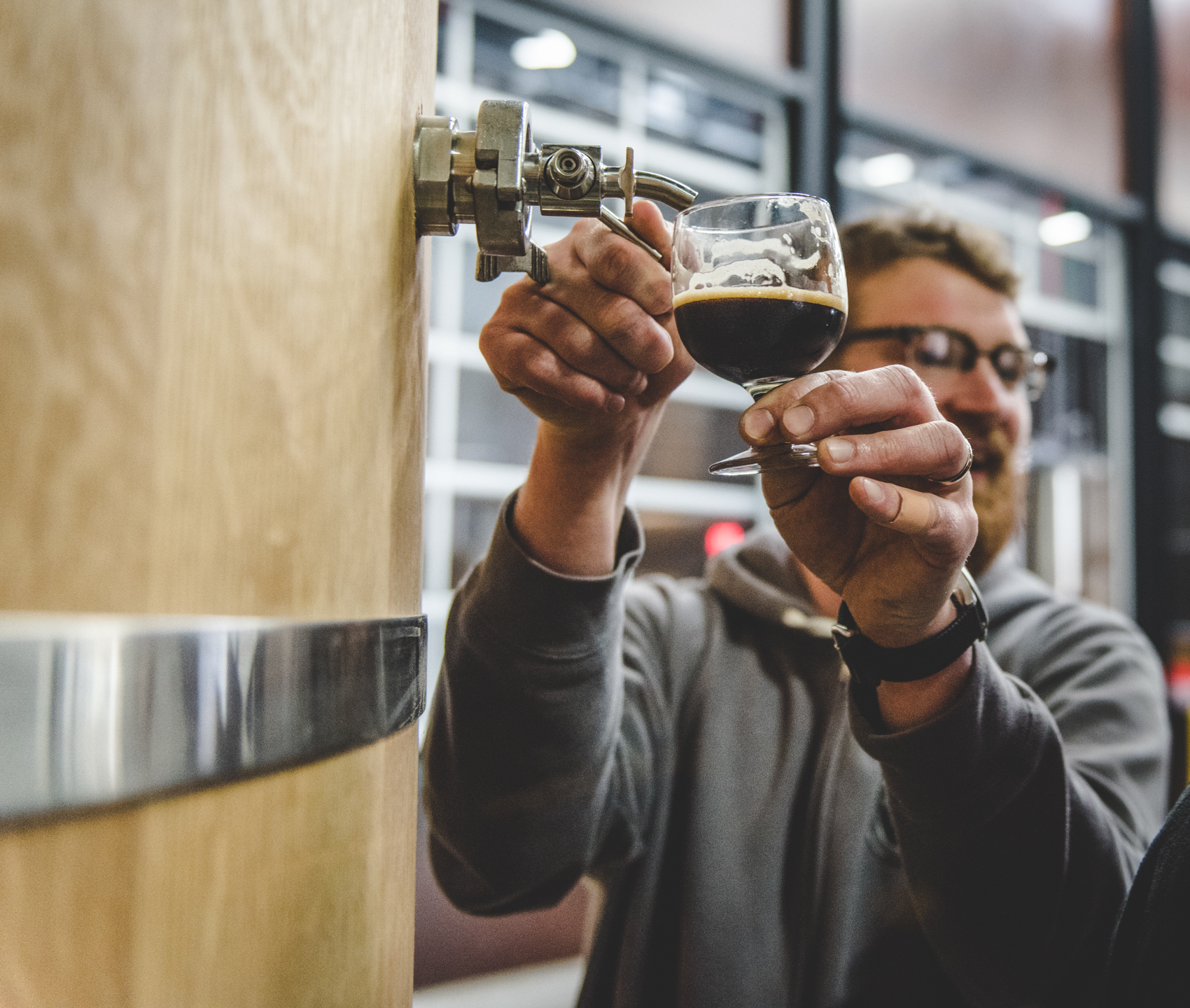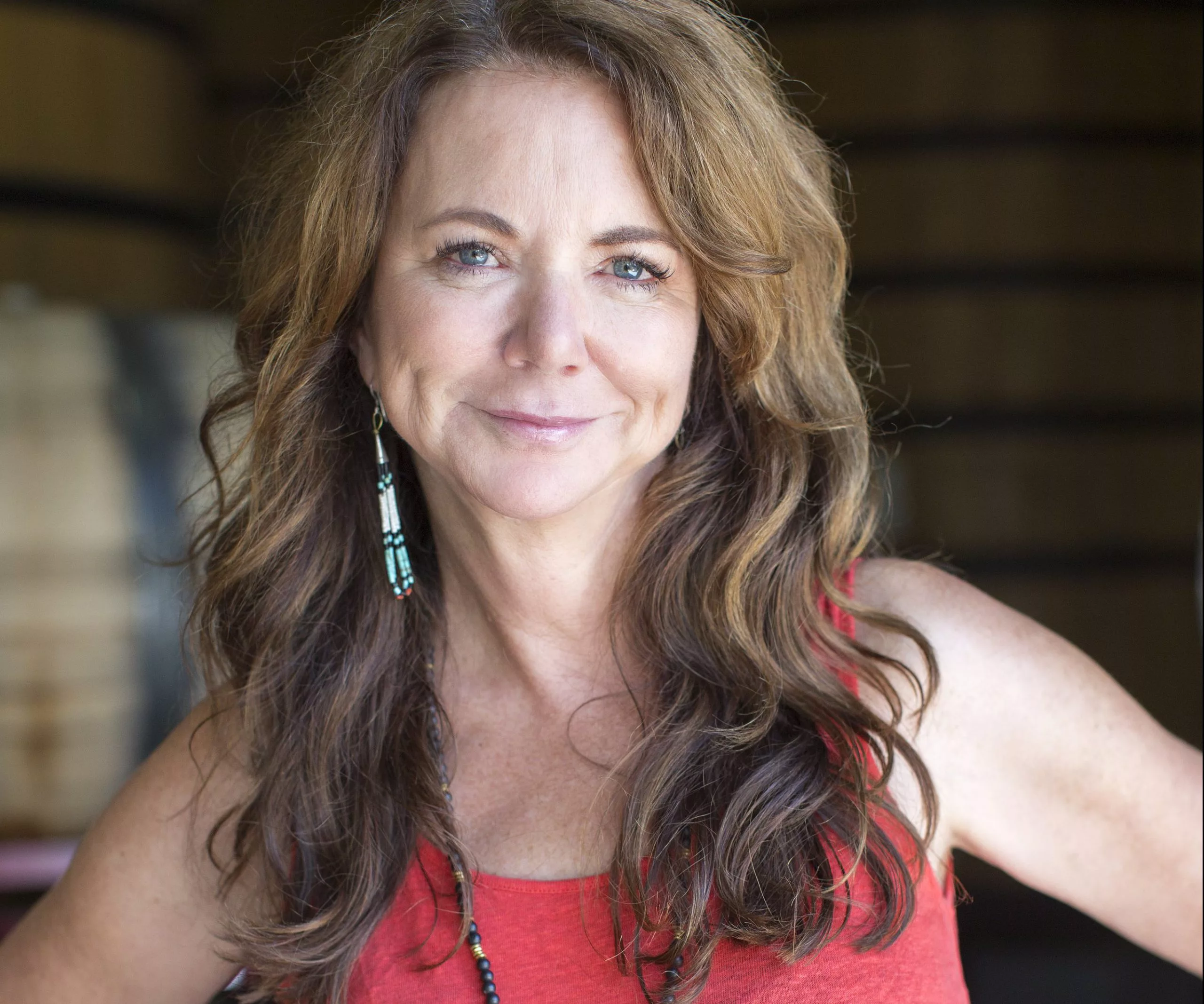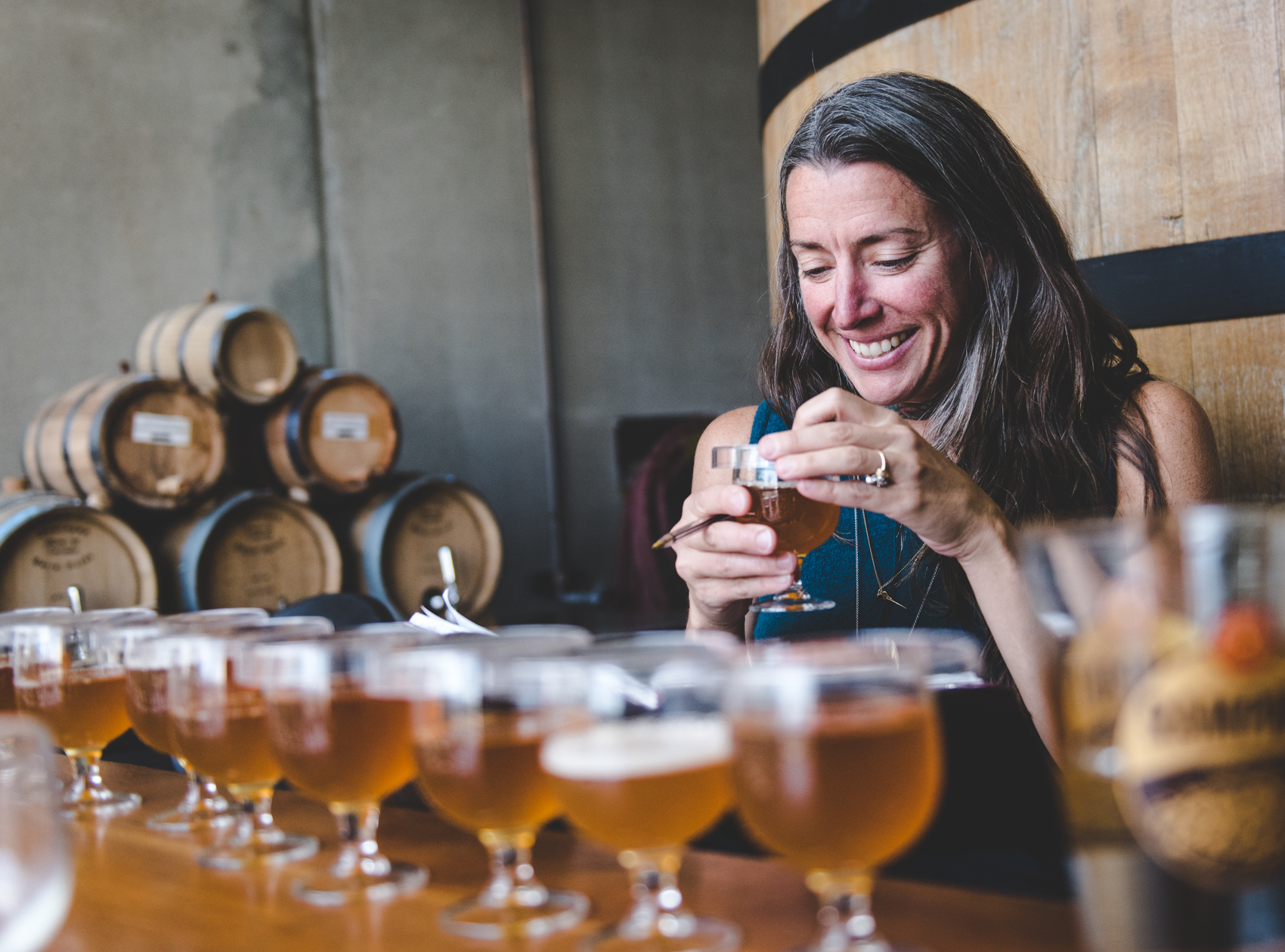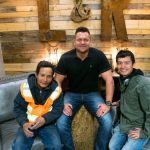In late 2012, New Belgium Brewing’s employees all gathered for a major announcement from company leadership. The business had been sold, co-founder and CEO Kim Jordan told them, and she asked each employee to open the envelope in front of them to learn who the new owners were. Inside, the 450 coworkers each found a mirror. Their Employee Stock Ownership Plan (ESOP), which already owned 42 percent of the company, was now taking possession of it all.
When Jordan and her then-husband, Jeff Lebesch, started New Belgium in their Colorado basement in 1991, they knew they wanted to do things a little differently. Lebesch became obsessed with craft beer from Belgium on a bike tour through that country in 1988. Jordan had worked as a social worker, and it became clear she would bring that human-centered perspective to her new role. Even in the early days, the pair spent time articulating the way they hoped the business would enact their values. “We thought about who we wanted to be as a company, why we existed at all, what we were going to stretch ourselves to do, and how we were going to behave as we did that,” Jordan says. Though “triple bottom line” wasn’t a well-known phrase at the time, the framework the pair articulated involved paying attention to the company’s environmental footprint and the relationship they wanted to have with their coworkers, and, of course, how to make sure the company stayed profitable. As Jordan often says, “You can be as groovy as you want to be, but if you can’t keep the doors open … Profitability in a business does become the ultimate form of sustainability.”

New Belgium is the fourth-largest brewer of craft beer and the eighth-largest brewery in the United States.
Luckily for New Belgium, its beers — including its best-known offering, Fat Tire — were a hit, and the company has grown to be one of the biggest and most successful craft brewers in the US. These days, the company diverts 99.9 percent of its waste from landfills, produces 12 percent of its energy via on-site renewables, and is actively working to reduce its carbon emissions and water usage.
Meanwhile, all employees are enrolled in the company’s ESOP after a year of employment (at which point they also receive a cruiser bike), and become fully vested after six years (bonus perk at year five: a trip to Belgium). The company’s participative ownership culture includes open-book management, continuous learning programs, annual opportunities to inform the company’s strategy, monthly opportunities to hear updates and provide input on the operations, and daily opportunities to ask questions about the business, all of which is rolled out to new hires during a 120-day orientation program. When a co-worker leaves New Belgium, their shares are purchased back from them (their payout) and redistributed into the ESOP. The payout can be scheduled over a number of years, and there are no variables based on how one leaves the business.
Jordan has stepped down as CEO, but as chair of the board, she is, as she puts it, “in the happy circumstance of being able to get out of the day-to-day and work on New Belgium strategically as a brewery and as a sustainable business role model.”
We spoke with her about New Belgium’s employee ownership experience and her journey as a leader.
New Belgium Brewing at a Glance
• Locations: Fort Collins, CO, and Asheville, NC
• Founded: 1991
• Team Members: 752
• Traction: Fourth-largest craft brewery in the US
• Impact: Through its tasting rooms, Tour De Fat festival, and philanthropy fund, the company has donated almost $15 million to nonprofit organizations in the communities it serves.
• Recognition: Outside Magazine’s Best Places to Work; Bicycling magazine’s 25 Best Companies for Cyclists; designated a Platinum-level Bicycle-Friendly Business by the League of American Bicyclists
• Structure: 100% employee-owned for-profit
• Certifications/Memberships: World Blu’s most democratic US businesses, certified B Corp, 1% for the Planet, Conservation Alliance, American Sustainable Business Council, thrice awarded LEED certifications, Business for Innovative Climate and Energy Policy, Glass Recycling Coalition, Brewers Association, Brewers for Clean Water
• Mission statement: “To manifest our love and talent by crafting our customers’ favorite brands and proving business can be a force for good.”
You’ve built a strong employee-ownership and empowerment culture at New Belgium. What would you say to a fellow CEO considering transitioning to employee ownership?
Kim Jordan: My viewpoint is more nuanced than it was in the beginning. First, ask, “Does our business model support this elegantly?” For instance, at New Belgium, we’re pretty asset-heavy. Brewing beer requires that we invest millions in breweries. So between growing the company by investing in assets and also making sure we have enough capital on hand to pay employees when they leave the organization, we have a lot of mouths to feed.
Second, ask, “Is there a way to get our coworkers enthusiastic and engaged in this?” I work with a lot of people who are extraordinarily committed and into the idea of employee ownership. Having said that, I also sometimes think that having real skin in the game could make a difference in how people think about ownership. Another reality of our business is that we hire a breadth of people, from unskilled and semi-skilled labor all the way through PhDs. If we said, “We would love for you to be an owner! You only have to figure out how you can come up with $5,000 to do that,” we would have a lot of people for whom that’s out of reach. Is there another way? For instance, by doing profit sharing, and letting people decide whether to keep the money or invest it in the company? I’m not sure that’s the exact model, but I do think about how people come to ownership in a way that underscores skin in the game.
Finally, ask, “Am I really willing to share and receive information?” It’s one thing to say you want people to be engaged in the business, but sometimes people tell you stuff you don’t want to hear. I actually find that really useful. I’m indebted to my coworkers for their bravery in talking to all of us in management over the years about where they think we’re doing well and where they think we’re falling down. But if you decide you’re going to have the kind of employee ownership we have, which includes a high degree of employee engagement, you have to want that.
You just mentioned increased feedback from employees as a potential benefit of employee ownership. What other upsides have you seen? What has you convinced that this is not only something worth doing, but something worth spreading?
KJ: People who visit New Belgium almost without exception will say, “I’m amazed at how much the person who gave me the tour knew about what the whole company does.” It’s my belief that that kind of broadly shared understanding of where we are and where we’re going creates a more successful company.
I’ve also been told, and see every day, that there’s a palpable energy: “We own this, we’re in this together, and it matters to us.”
And I think about all the people whose lives we’ve changed because, at whatever time they left New Belgium, they had amassed enough wealth to feel like they could put a couple of kids through college, buy a second home, save for their own retirement. Whatever they’re trying to do, we’ve helped a lot of people get closer, and that’s a great success.
How have you had to change as a leader since you implemented employee ownership in the business?
KJ: Leadership is a combination of being open to learning and listening to feedback and trying things and sometimes succeeding and sometimes failing. You accrue those skills over time.
But I used to think anybody could be a leader; now I think it’s a personality trait not everyone possesses. There are certainly some parts of leadership, like being able to be firm, that lots of people can do. But people who tend to be comfortable with leading are often systems thinkers, and they’re able to synthesize both the longer-term horizon and the situation at hand.
One of the places I’ve had to significantly rethink my leadership has been transitioning from CEO to board chair. I’ve actually done that twice. It requires finesse and nuance and really, a talking-to. You’ve got to make sure your motivations are clear to yourself, and that you’re trying to be in the right position on the leadership spectrum. So you’re not trying to be the CEO, you’re trying to be the longer-term capability builder.
 It’s unusual to get to make that transition out of the CEO role twice. You did it once in 2015 as Christine Perich took over, then you stepped back into the CEO role in 2016. In 2017, you handed the reigns to Steve Fechheimer. Do you have any clear lessons from those experiences?
It’s unusual to get to make that transition out of the CEO role twice. You did it once in 2015 as Christine Perich took over, then you stepped back into the CEO role in 2016. In 2017, you handed the reigns to Steve Fechheimer. Do you have any clear lessons from those experiences?
KJ: I was super lucky that I got to do it twice. What I’ve learned is just make sure the personalities involved are all enthusiastic about co-creating. It sounds so simple, but when everyone is working to the best outcome of the organization and there’s respect and care between people, the process of succession can go smoothly, and even be joyful.
What is your point of view on the role of business in solving social problems and creating a better world?
KJ: We have to pull every lever we can, especially in these times. One of those levers is CEOs and boards of directors deciding to care about the planet, care about community. … First, they need to use their practice to care about their coworkers and the environment and communities where they do business.
The next step is to advocate. In the mid-2000s, about the same time that we started our sustainability management system work, we realized we were squandering opportunities to be a business role model. We went from “our practice makes a splash” to “our advocacy makes a ripple.” We now understand the importance of signing on to the Clean Power Plan or Watersheds of the US or advocating for B Corps, for example. Advocacy is another way that business can put its shoulder to the wheel.
Then there is also the work of . Both through New Belgium and through the New Belgium Family Foundation, we do a lot of impact investing in companies that are working on things we think are likely to be for-profit businesses that help to make a better world.
What is the most frustrating thing that people get wrong or misunderstand about what you built and how you built it at New Belgium?
KJ: Sometimes people will say, “Oh, we could never do high-involvement culture at my company because we just can’t imagine having everybody making every decision.” I find that frustrating because it feels like an excuse for not wanting to create a different kind of energy in your organization. It’s entirely possible to be connected to people and to have them feel empowered and in the know.
We manage New Belgium in a progressive but fairly way. Executive management makes the big-level strategy. They’re in charge of getting clear on the metrics to indicate we’ve achieved those things. They’re charged with communicating that to the next level down, and the next level, and with helping people develop plans that are powerful and on target.
I don’t order forklift tires because I have no idea what the best kinds of forklift tires are, but I do look at the long-term trends in the industry, because that’s my job: to scan the horizon and be aware of that. It’s possible to empower people and to run a business that runs smoothly and with a lot of alignment and autonomy.
How do you feel about the pace of the company’s scaling? What was great and what was hard about it?
KJ: We’ve taken 26 years to be national, in part because we have a business model that requires a lot of CapEx . You can’t just build a brewery in a week, especially if you’re trying to build a technologically sophisticated brewery. In my mind, we’ve grown at just the right pace, and it’s been a clip. But we may seem slow, depending on what your core business capability and needs are. You talk to people who are in tech, and some of them aren’t even 26 years old as founders.
The thing that’s been great about it, and the reason that we decided to grow at all, is that it provides opportunity for the organization. Fifteen years ago, when we were talking about whether we wanted to grow, the only thing that made us feel enthusiastic was that everybody got to have new opportunities and new projects. That sounded more fun than everybody just sitting in their same old positions.
As human beings we have a lot of ambivalence about growing. It’s a matter of focusing on what you want to grow — to get a level of alignment with your values.
What do you mean, “what you want to grow”?
KJ: Do you want to grow your capability as a business role model or do you just want to get more cases out the door? Do you want to grow your skills in management competency, or the size of your distribution footprint? They’re not mutually exclusive. You can do all those things, but part of how you feel enthusiastic about growth is by making sure the totality of it fits in good alignment with your values.
Tell me a leadership lesson that you’ve had to learn the hard way.
KJ: Listening well to other people and understanding that if I speak first, they are likely to just agree with what I say. Then the other side is, I think it’s a chump move to say, “Well, let’s think about all the possibilities” if you have a definitive sense of the outcome that you’re going for and you already know what you want to have happen.
At the same time, if you always know what you want to have happen, then I would suggest that you’re squandering the native intelligence of the room. Sometimes when you’re the boss, it’s easy to feel: “I have the answer. I have a good idea and I want to tell you about it.” I’ve had to be very purposeful about stopping myself and paying attention to the process of getting other people’s voices in the room — which I’m not real proud of, by the way, but there you have it.
You’ve had a big job for a long time. What keeps you balanced and sustainable in your own being?
KJ: I try to remind myself that very few things are unsolvable. There’s a human development theory about recycling that says that you may not have mastered the issue or solved the problem on the first pass, but that you will often get other opportunities to try again.
Years ago, we were having some issue … It’s funny because now I can’t even tell you what it was, but in the moment it seemed like a great big deal. The president of our distributor group said to me, “Kim, pros don’t panic.” I find it useful to remind myself of that, and that “we are right where we are supposed to be.” That keeps me from perseverating about something all night long.
I try to take breaks and I try to make sure that I’m having some fun, taking opportunities for contemplation. But years ago I heard Lynne Twist speak, and somebody asked her about work-life balance. She said, “I’m not really that into work-life balance. I’m racing to the very edge of the thing I’m doing in the moment, doing it with everything I have, and then going on to the next thing.” And I’m with her. You have to have work-life effectiveness, and awareness of not overworking, but I don’t know that we do ourselves a big service by setting ourselves up to think that if it doesn’t all feel balanced, somehow we’re failing.
What is giving you hope?
KJ: I talk with a lot of people who are committed to making a better world in their own way, and that makes me hopeful. There’s a lot of good intentions. 
New Belgium’s Company Values
1 // Remembering we are incredibly lucky to create something fine that enhances people’s lives while surpassing our consumers’ expectations
2 // Producing world-class beer
3 // Promoting beer culture and the responsible enjoyment of beer
4 // Kindling social, environmental, and cultural change as a business role model
5 // Environmental stewardship: Honoring nature at every turn of the business
6 // Cultivating potential through learning, high-involvement culture, and the pursuit of opportunities
7 // Balancing the myriad needs of the company, our co-workers, and their families
8 // Trusting each other and committing to authentic relationships and communications
9 // Continuous, innovative quality and efficiency improvements
10 // Having fun

 It’s unusual to get to make that transition out of the CEO role twice. You did it once in 2015 as Christine Perich took over, then you stepped back into the CEO role in 2016. In 2017, you handed the reigns to Steve Fechheimer. Do you have any clear lessons from those experiences?
It’s unusual to get to make that transition out of the CEO role twice. You did it once in 2015 as Christine Perich took over, then you stepped back into the CEO role in 2016. In 2017, you handed the reigns to Steve Fechheimer. Do you have any clear lessons from those experiences?


